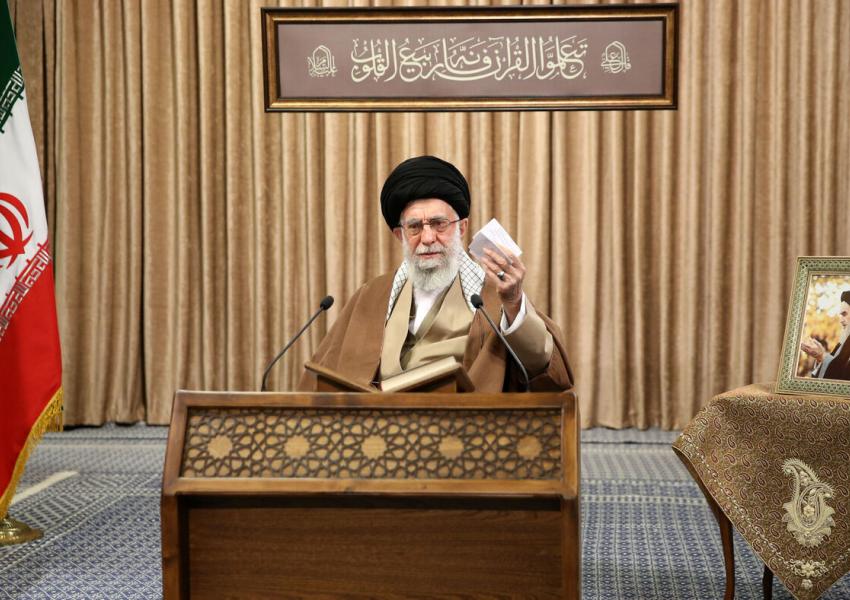
Iran Hardliners Tone Down Criticism Of Vienna Talks After Khamenei Speech
Hard-line Iranian opponents of Iran’s 2015 nuclear agreement between Iran and world powers have toned down criticisms of talks in Vienna aimed at reviving the deal. This follows last Wednesday’s relatively conciliatory speech from Supreme Leader Ali Khamenei and a series of articles on the leader’s website calling for unity.
The second round of talks, which started in Vienna on Thursday, has experts identifying United States sanctions that contravene the 2015 deal and that would need to be lifted before the US, as President Joe Biden intends, returns to the agreement.
In his televised speech last Wednesday Khamenei reiterated criticisms of US arrogance and condescension, but his tone was reminiscent of his 2013 speech supporting nuclear talks involving Washington that paved the way for the 2015 deal, the JCPOA (Joint Comprehensive Plan of Action.
The leading article of the latest issue of Khat-te Hezbollah, the weekly publication of Khamenei's office, highlighted under the headline "The Final Word" various of the leader’s speeches on the nuclear issue, including his exhortation to officials and politicians on February 22 "to resolve differences" and not allow "two contradictory voices." Khat-te Hezbollah is widely distributed at among government bodies, soldiers and at Friday prayers.
Since last Wednesday’s speech, critics of the government, including Parliament Speaker Mohammad-Bagher Ghalibaf (Qalibaf) and hardline media outlets, have avoided inflammatory remarks about the talks. One analyst noted the hopes for success in Vienna expressed last Friday by Abbas Araghchi, the deputy foreign minister leading the Iranian delegation.
"We can see that in the two days since Mr Araghchi's remarks about the possibility of a new agreement ultra-right groups have not reacted with radical and acrid remarks so it can be said that a consensus has formed in the country to allow people some relief from the economic pressures [resulting from US sanctions]," Ali Bigdeli, international relations expert, was on Monday [April 19] quoted as saying by Fararu, a conservative website.
With the possibility of agreement in Vienna, Bigdeli stressed the need to resolve an impasse over legislation allowing Iran to join the intergovernmental money-laundering and financial transparency watchdog, Financial Action Task Force (FATF). Two of four bills that would facilitate FATF accession passed by parliament and rejected by the watchdog Guardian Council have been stuck in limbo for two years at the Expediency Council, which adjudicates disagreements between state bodies. Bigdeli told Fararu that the Expediency Council would probably pass the legislation if US sanctions were lifted.
The FATF penalized Iran in February 2020 for failing to pass adequate financial safeguarding laws and authorized member states, who host most of the world’s financial centers, to take strict counter-measures. While FATF accession would make it harder to Iran to circumvent US secondary sanctions targeting its financial sector, it would encourage the return to Iran of energy majors like Total, Royal Dutch Shell and Japex.
At an online briefing on Monday, Iran's Foreign Ministry Spokesman Saeed Khatibzadeh said progress had been made in Vienna while differences remained. Iran appears to be pushing for a speedier process after Khamenei's call last Wednesday for talks not to "stretch" or become "attritional."




